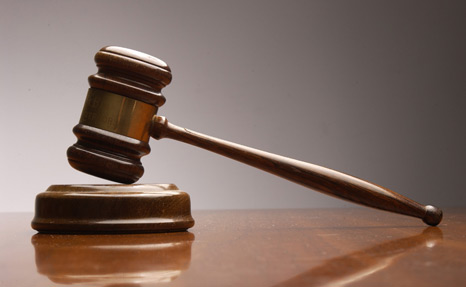Say No to the Boycott Bill
On July 11, 2011, the "Bill to Prevent Harm to the State of Israel Through Boycotts” passed its second and third reading in the Knesset. This controversial law imposes sanctions on bodies that advocate economic, academic, or cultural boycotts of Israel or of specific areas of the country. In this op-ed, which was originally published in Hebrew in the Maariv daily newspaper prior to the Knesset vote, IDI Vice President of Research Prof. Mordechai Kremnitzer and IDI Researcher Attorney Amir Fuchs explain why this law poses a serious threat to freedom of expression in Israel.

On Monday, June 27, 2011, the "Bill to Prevent Harm to the State of Israel Through Boycotts" passed its first reading in the Knesset's Constitution Committee and was advanced to its second and third reading. It would be more appropriate to call this bill "The Bill to Cause Harm to the State of Israel," since the proposed legislation, which would impose sanctions on those who call on others to refrain from buying products from Israeli settlements in the West Bank or from attending cultural events in such settlements, would seriously damage freedom of political expression in Israel. At a time when Israel is fighting for its legitimacy in the world, this bill threatens to undermine the efforts of Israeli public diplomacy. If Prime Minister Netanyahu wishes to continue lauding Israeli democracy and praising Israel's freedom of expression, as he did during his recent address to Congress, he would be well advised to reconsider his position, and that of his government, regarding this bill.
To the surprise of most of the people who participated in the Committee's deliberations regarding this bill, a new clause was added in the dead of night, which changes the bill from one more law in a series of offensive and harmful laws to a law that is downright destructive. During the discussion, it became clear that in order to avoid the inclusion of criminal offenses in the legislation, representatives of the Ministry of Justice and the proponents of the bill agreed that the bill would include far-reaching administrative sanctions against anyone who is deemed by the Minister of Finance, in consultation with the Minister of Justice and other relevant ministers, as having participated in a boycott against the State of Israel. Thus, for example, according to the bill, a public institution that supported a boycott would lose the funds that it is entitled to according to the Budget Foundation Law. Alternatively, it could be denied funds that it would have received under the Sports Gambling Arrangement. Similarly, it would not be recognized as a public institution under the Income Tax Ordinance, which would preclude it from receiving tax exempt donations, and it would not be entitled to additional economic benefits.
Thus, under the guise of sanctions that are "proportional" rather than criminal, politicians have been given broad discretion to cause severe damage to bodies that have made what is clearly a political expression. Moreover, the following checks that are included in criminal proceedings are lacking from the proposed arrangement: discretion of the State Prosecutor, evidence beyond reasonable doubt, limitation of the application of the law by the court, and the opportunity for the court to register its protest by sentencing the organization to pay a token fine.
Does the idea of imposing a budgetary sanction in response to the expression of a particular opinion sound familiar? Indeed, it looks like the "Nakba Law," swims like the "Nakba Law," and quacks like the "Nakba Law." But the current arrangement is more harmful and far-reaching than the Nakba Law. The Nakba Law, according to its supporters, is based on the reasoning that an anti-State activity that is run by a State-funded organization should not itself be funded with State funds. The current bill, however, applies to expressions of opinion that have no connection whatsoever with expenses that have been incurred or with state funding. Even worse, unlike the Nakba Law, the proposed bill does not include a ceiling that would limit the damage that could be done to an organization that has engaged in such "folly" - it could be completely stripped of all of its government support or all the benefits for which it is eligible. Thus, in this case, it would be possible to paralyze the organization completely.
There is also no mechanism for overseeing the exercise of authority. Does anyone still think this means is more a "proportional" law than a criminal law? The Foundations of the Budget Law defines a "public institution" as "a body that is not a State institution, which engages in activities for purposes of education, culture, religion, science, art, social welfare, health, sports or similar purposes." Imagine that the director or board of such a body, say in the Arab sector, makes a decision not to purchase products from the settlements. Is it conceivable that the organization will be denied the support that it receives? Like the "Nakba Law," what is being proposed is the collective punishment of a public that enjoys services provided by a public institution that receives funding from the state as a right and not as a privilege.
The proposed bill will not prevent Israel by being harmed through boycotts. On the contrary; it is the law itself that will damage Israel, and encourage its delegitimization in the world.
Prof. Mordechai Kremnitzer is Vice President of Research at the Israel Democracy Institute. Attorney Amir Fuchs is a researcher at the Israel Democracy Institute.
This article was first published in Hebrew in Maariv on June 29, 2011, and has been translated and used with permission.
